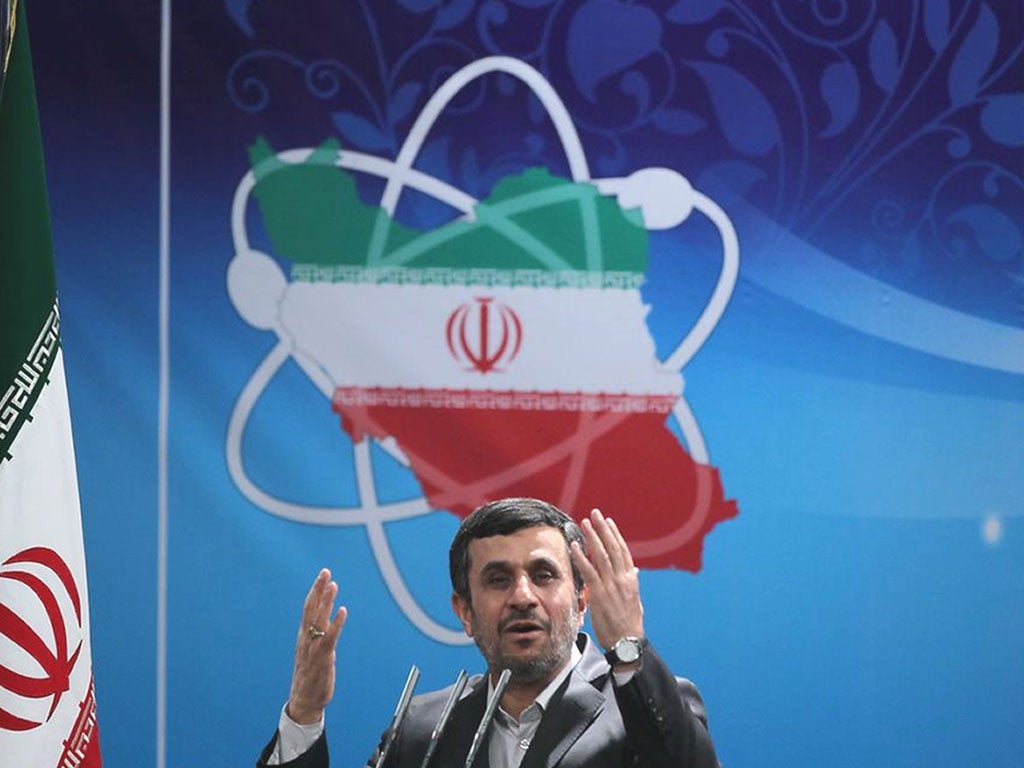US gives Iran 'last chance' warning over shutting down nuclear facility
Obama demands concessions as crucial talks begin in Istanbul later this week

Iran must immediately close a large nuclear facility built underneath a mountain if it is to take what President Obama has called a "last chance" to resolve its escalating dispute with the West via diplomacy.
Other "near term" concessions which must be met in the early stages of talks to avoid a potential military conflict, include the suspension of higher level uranium enrichment, and the surrender by Tehran of existing stockpiles of the fuel, senior US officials said yesterday.
The demands were outlined as Iranian state TV announced that crucial negotiations over its disputed nuclear programme will begin in Istanbul on Friday, allaying fears that disagreements over the venue would derail the important and long-scheduled talks.
US diplomats, who will join counterparts from the UK, China, Russia, France and Germany, at the bargaining table, told reporters that they will insist on Iran's leadership giving up the Fordow enrichment plant, which is just outside the Shia holy city of Qom.
The facility is buried deep in a mountain, apparently to protect against air strikes, and is at the centre of Israeli fears that the country's military leadership is secretly developing weapons that could mount a long-range strike across international borders.
A senior US official told The New York Times that the White House has "no idea how the Iranians will react" to the demands, and "probably won't know after the first meeting".
But he said that more serious talks cannot proceed unless they are met. Another US source told Reuters that the country must also export its entire stockpile of uranium enriched to 20 per cent purity if they are to stave off potential military action, saying, "20 per cent and closing Fordow are near-term priorities" for the Obama administration.
The negotiations are hugely delicate, both on the international stage and in the US, where in the run-up to November's election, President Obama is anxious to challenge Republican claims that he has been "soft" on Iran.
Many of Mr Obama's predecessors have taken a gung-ho approach to foreign affairs prior to their re-election battles, perhaps banking on the theory that the patriotic fervour of an America at war is more likely to give its incumbent President a second term.
The current debate over Iran isn't quite so straightforward, though.
Firstly, there is no guarantee that the US electorate would back intervention there, given the cost and mixed outcome of their country's interventions in Iraq and Afghanistan.
Secondly, an unpredictable conflict in the Middle East could cause oil prices to spiral, threatening America's economic recovery and directly impacting the financial resources of voters, who are already voicing disquiet at fuel costs that are approaching record levels.
With this in mind, the White House hopes to persuade its allies that a mixture of crushing sanctions and diplomacy can be more effective than intervention. It has repeatedly pressed Israel to hold off pre-emptive military strikes until sanctions are proven to have failed.
US intelligence agencies are convinced that Iran suspended its nuclear weapons programme in 2003. Recent surveillance operations, particularly by drones, have failed to provide any evidence that such operations have actually recommenced.
Iran, for its part, insists that the nuclear programme is designed for power generation and medical and scientific research. It has repeatedly rejected calls by the UN Security Council to suspend nuclear enrichment.
On paper, Iran's government may in any case find it tricky to give in to US demands to close Fordow. After recent domestic developments, they face growing threats to their powerbase, so are anxious to retain the appearance of political strength.
Join our commenting forum
Join thought-provoking conversations, follow other Independent readers and see their replies
Comments
Bookmark popover
Removed from bookmarks